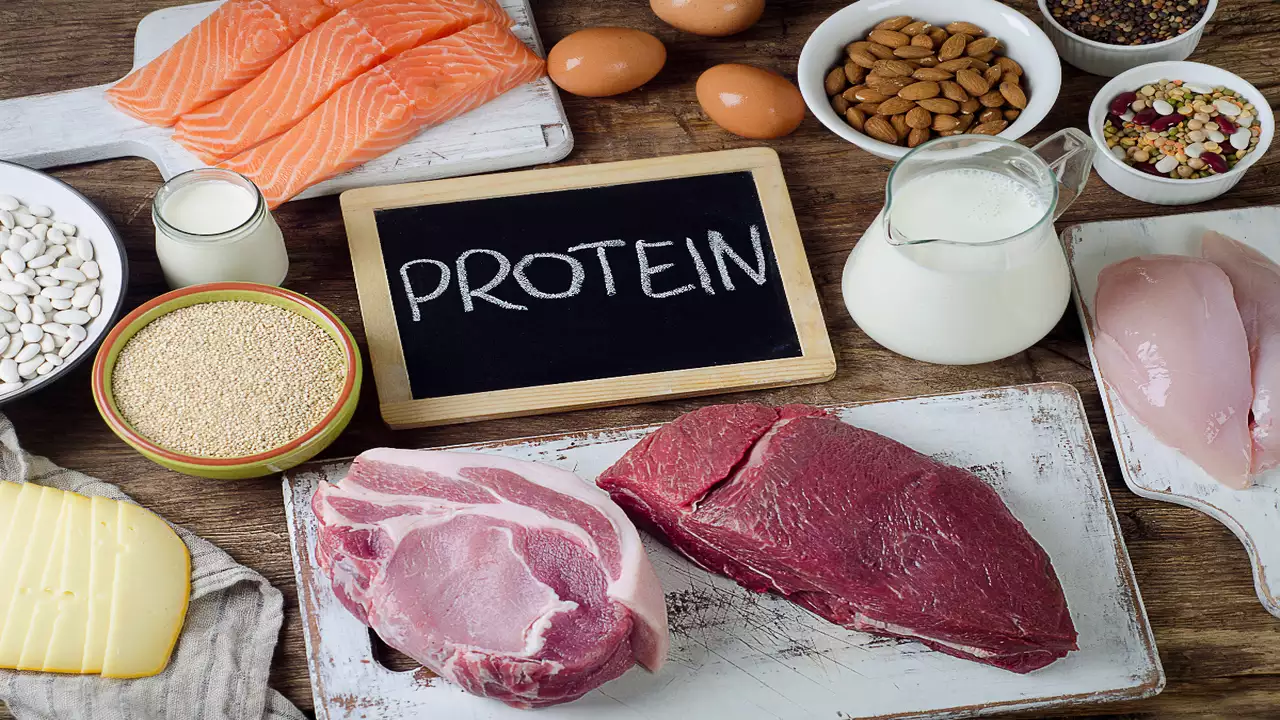Protein is an essential nutrient that plays a crucial role in weight loss. Not only does it help to build and repair muscles, but it also keeps you feeling full and satisfied, preventing unnecessary snacking and overeating. But how many grams of protein should you be consuming daily to maximize your weight loss efforts?
In this post, we will find out the optimal amount of protein you should be aiming for to support your weight loss goals.

Contents
How Many Grams Of Protein A Day For Weight Loss?
The optimal amount of protein can vary based on various factors such as your age, weight, and physical activity level. For sedentary individuals, the minimum recommended protein intake is 0.8 grams per kilogram of body weight or about 0.36 grams per pound. So, if you weigh 150 pounds, you would need approximately 54 grams of protein per day. This is a baseline requirement for someone with minimal physical activity.
If you are more active, however, you will likely require a higher protein intake to support your energy needs and muscle growth. The general range for active individuals is 1.2 to 2.0 grams of protein per kilogram of body weight per day. This translates to about 0.55 to 0.91 grams of protein per pound.

Considering the weight loss perspective, it is typically recommended to consume 16 to 24 grams of protein per kilogram of body weight, or about 7.3 to 10.9 grams of protein per pound. For instance, if you weigh 150 pounds, you would aim for approximately 109 to 164 grams of protein per day to support your weight loss goals while preserving muscle mass.
How does protein help weight loss?
Protein plays a crucial role when it comes to weight loss. Let’s dig into how protein can aid your weight loss journey:

- Increased Feeling of Fullness: Protein is highly satiating, meaning it keeps you feeling full for longer periods. By including protein-rich foods in your meals and snacks, you can curb hunger pangs and avoid overeating. This, in turn, can help you create a calorie deficit – a key component of weight loss.
- Preserving Muscle Mass: During weight loss, it’s not just fat that you burn – you may also lose muscle mass. However, a higher protein intake can aid in the preservation of muscle mass. This is particularly important because more muscle helps boost your metabolism and increases the number of calories you burn throughout the day.
- Boosting Metabolism: When you reduce your calorie intake, your metabolism may slow down. However, a higher protein intake can help counteract this effect by preserving muscle mass. This keeps your metabolic rate up and ensures that you continue to burn calories efficiently.
- Promoting Fat Loss: Protein not only helps prevent muscle loss but also promotes fat loss. It has a greater thermic effect compared to carbohydrates and fats, meaning that your body burns more calories during the digestion and absorption of protein. This can contribute to overall fat loss.
FAQs:
Is 100 grams of protein a day good for weight loss?
Eating at least 100 grams of protein a day is important for anyone trying to lose weight, as it helps to ensure fat loss rather than muscle loss.
Is 30g of protein enough to lose weight?
Each person should aim for at least 30 grams of protein at each meal to support weight loss or body fat reduction.
How many grams of protein do I need to lose belly fat?
For those who are physically active, aiming for 1.3 to 1.8 grams of protein per kilogram of body weight per day (about 90g to 130g for a 70kg man or 80g to 110g for a 60kg woman) can help promote a flat stomach.
Is 200g of protein a day good for weight loss?
A 200-grams-of-protein-a-day meal plan is more suitable for bodybuilders and athletes. For most people trying to lose weight or gain muscle, the recommended protein intake is generally much lower based on their calorie intake and body weight.

Hello, I’m Ravindra. Over the years, I’ve immersed myself deeply into the world of fitness and health, transforming both my body and mind. Writing has allowed me to share my journey, insights, and expertise with those just starting out and seasoned fitness enthusiasts alike. Beyond just routines and diets, I believe in inspiring others to adopt a holistic approach to well-being.
